#especially in the experience of an asian american woman
Explore tagged Tumblr posts
Link
“When we lie about the basic values of our culture (that women must be beautiful) and yet do everything in our power to adhere to that value (we kill ourselves to make ourselves beautiful) and lie about the labor women must put into adhering to the unspoken value of our culture (we have to be effortless), we ensure that nothing will ever change. We can’t change our culture when we lie about what the culture is. We can’t accept ourselves until we stop pretending that we already do. And we can’t value our work until we acknowledge that this is work—this, THIS (please imagine me gesturing expansively at the world)—that existing in a body as a woman in this world is work.”
#this is a really interesting look at what kind of burden the expectations for women are#especially in the experience of an asian american woman#bc as the writer says trying to live up to the standards u.s. society puts on women is a job in and of itself#women are encouraged if not expected to shell out hundreds of dollars on creams and serums and wraps that might not even work#all for the sake of trying to maintain the illusion that we're not aging--or if we are; we're doing it gracefully and flawlessly#and not like...y'know actual human beings who get age spots and laugh lines and wrinkles#and we're constantly caught in THE most ridiculous catch-22:#if you don't try you're ''letting yourself go''#but if you try ''too hard'' you're high-maintenance or vain#and we can't just say fuck it because it even impacts our ability to get hired#there was a study recently where several male execs said they probably wouldn't hire a female candidate who wasn't wearing makeup#bc it meant 'she wouldn't put in the effort'#anyway society is a curse enjoy your thursday evening#i gotta go back to my blorbos or i'll work myself into a rage spiral
6 notes
·
View notes
Note
Hi, there!
I was wondering if you had some sort of a list of long-lenght GL movies from any Asian country. I've either found short films on GagaOOLala, or very few titles at all.
Hi! There are lots of movies and many good lists to find online, especially on Letterboxd. Here are some I’ve watched and would recommend:

Blue (2002), dir. Hiroshi Ando
An introverted schoolgirl falls in love and starts a relationship with one of her classmates. Set in a small seaside town in Japan.

Saving Face (2004), dir. Alice Woo
A Chinese-American lesbian and her traditionalist mother are reluctant to go public with secret loves that clash against cultural expectations.

The Handmaiden (2016), dir. Park Chan-wook
In 1930s Korea, a swindler and a young woman pose as a Japanese count and a handmaiden to seduce a Japanese heiress and steal her fortune.

Billie & Emma (2018), dir. Samantha Lee
Billie, a teenage rockstar, moves to the province and meets Emma, a model and almost perfect example of a good daughter. They go through the experience of first love.

Moonlit Winter (2019), dir. Lim Dae-hyung
The arrival of an intimate letter prompts a young woman to bring her mother on vacation to a small Japanese town, where someone special resides.

Badhaai Do (2022), dir. Harshavardhan Kulkarni
A gay cop and a lesbian teacher enter a sham marriage to pacify their families but find that relationships — both real and fake — aren’t all that easy.

Maja Ma (2022), dir. Anand Tiwari
A rumour about an unassuming housewife threatens to disrupt her middle-class family’s life on the eve of her son’s engagement.

Rookie (2023), dir. Samantha Lee
An awkward 6-footer teen is forced to learn and play volleyball half-heartedly when the Catholic school she transferred to did not have a basketball team. Everything changes when she meets her star player.
#blue 2002#saving face#the handmaiden#moonlit winter#billie & emma#billie and emma#badhaai do#maja ma#rookie movie
121 notes
·
View notes
Text
The Potential of Asian Lois Lane. Pt 1: Girl Taking Over and American Alien, a comparative analysis

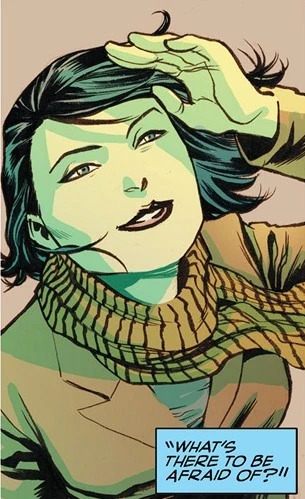
Lois Lane has had many iterations over the years. But specifically in the last decade, Lois has been reimagined as an Asian American woman in both the comics and recently in the animated show My Adventures with Superman.
I believe making Lois Asian is a very inspired choice for the Superman mythos! I would like to take a moment to analyze these versions of Lois from an Asian perspective, seeing what works, what doesn't, and what I'd like to see more of. We'll start with the comics first, as MAWS is going to need its own post.
Usual disclaimers: I'm just one Asian perspective, I do not and never will claim to cover every Asian person's opinion on a thing ever. We're not a monolith, we come from a variety of backgrounds and experiences. I'm simply a fan who enjoys media analysis and believes it's valuable to have my perspective in this topic. Secondly, this discussion covers the comic run American Alien, which is written by Max Landis. He's an ultra creep and while I think the comic is worth a read for what it is, I leave it up to you whether you'd like to buy the comic. You can always arg-arg-ahoy otherwise.
I'd like to start with Girl Taking Over: A Lois Lane Story written by Sarah Kuhn with art by Arielle Jovellanos. This is a self contained YA graphic novel about a young Japanese American Lois dealing with the ups and downs of breaking into journalism as a career in National City. When her dream internship at Catco gets a corporate take over, Lois seizes an opportunity to write an exposé on a shady art director. But when her story is turned down, Lois does some out of the box things to get the story of marginalized performers shared with the world.
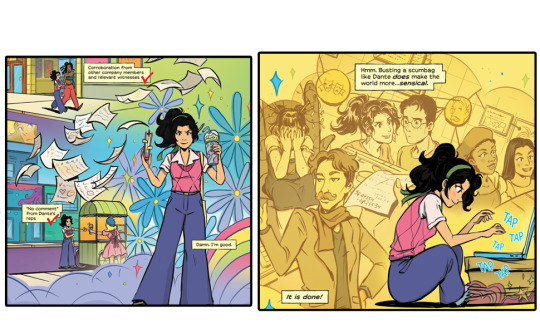
Girl Taking Over is a fantastic story and I happily recommend it to anyone looking for how an Asian American Lois could be reimagined (with fabulous art by Arielle! The fashion especially is on-point). This story isn't just a diverse coat of paint on a Lois Lane story, being Asian informs Lois' experiences and choices. Both she and her frenemy roommate Miki, are ambitious Asian women yet have hidden insecurities where they still made themselves small to their respective white male bosses. They played into model minority in different ways, and it's only by working together that they're able to foster a community for their stories to be told.
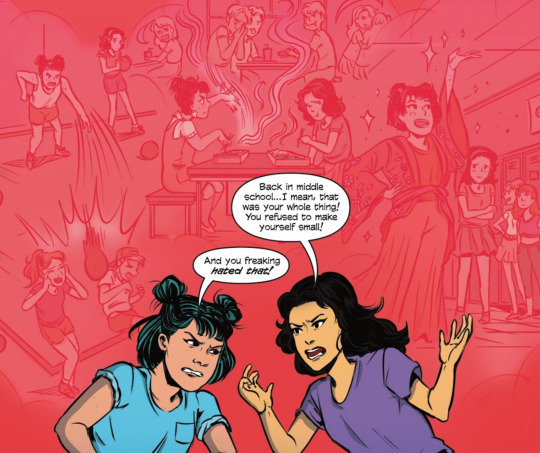
Lois and Miki don't just "have a diverse friend group", that friend group is actively being taken advantage of and suppressed by white gatekeepers. By extension, Lois' friends from work find solidarity in each other. Lois looks up to Cat Grant, a Filipina-American journalist, because seeing Cat succeed made Lois feel like her dream as a journalist is possible. I love how Lois' mom (a character so rarely expanded on in DC canon) acts as a voice of comfort for Lois in the story. All these characters feel holistic and whole, going through their own unique struggles.

It's clear from interviews with both the writer and artist that they care for the history of Lois, and saw an opportunity to reimagine her in a way that aligns with her character but also revitalizes her for new readers of color who aren't used to seeing themselves reflected in media. It's taking Lois' ambition and fearlessness and channeling them into the need to be a model minority, and the insecurities that can come from the desire to succeed constantly. It's taking a character historically frustrated by sexism and disrespected by her male peers- including Clark Kent (who got better treatment than her as a man), and expanding her to be a Lois that has to deal with both sexism and racism in the workplace. It's humanizing Lois' excellence into something painfully specific and relatable for many Asian women.
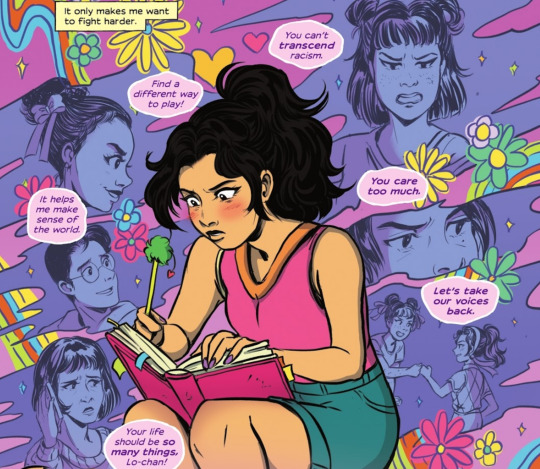
The only thing I feel I want from this version of Lois is... honestly more of her! I want to see what Japanese Lois does when she moves to Metropolis and works at the Daily Planet. I want to see how her experiences in National City informs her adulthood. Girl Taking Over sets up an incredible groundwork for stories to be told in the Superman mythos. How would Lois react to Superman, a fellow immigrant? Would Superman see himself in Lois? Since she's someone who, in the American context, is perceived as the perpetual foreigner? What would their relationship be like? Out of all the Asian Lois' in media we have so far, this Asian Lois' story has the most rich potential in my opinion.
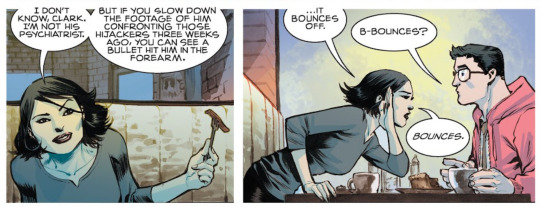
Up next, we have American Alien written by Max Landis. This 7 issue series swaps artists for each issue, as a means of reflecting different milestones in Clark's life. I will be focusing on issues #4, 5, and 7 since those have the most prominent Lois appearances. With that, I'd like to celebrate the artists for those issues: Jae Lee (issue 4), Francis Manapul (issue 5), and Jock (issue 7). All these artists did a fantastic job, their art styles are energetic and fun to look at. Lee and Manapul are both Asian artists (Korean and Filipino respectively) and I love how they draw Lois- who looks undeniably Asian in their art styles.

American Alien is a modern take on the Superman tale. It expands Clark's story to be connected to Batman, Green Lanterns, Green Arrow, and more. We see Clark grow from his days in Smallville to a city boy in Metropolis, coming into his own as Superman. It's a bold and pretty divisive take with some standout story moments. From what I know, this is likely the first time Lois has been reimagined as Asian- and continues to influence Superman media like MAWS (the producer specifically calls out this comic as inspiration).
In issue #4, Clark moves in to his Metropolis apartment and talks on the phone to his mom about "some bigshot guy named Louis Lane". The reader, likely familiar with the Superman mythos, knows Clark is coming in with biases and a preconceived notion of who he considers a promising student reporter. Once we meet Lois Lane however, the comic turns the reader's expectations on their head:
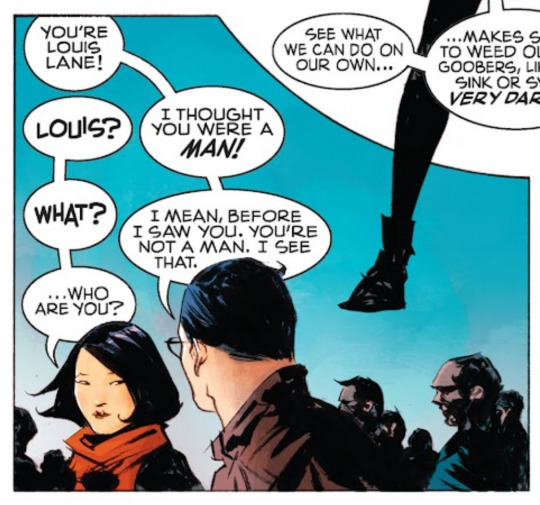
Lois Lane is an Asian American woman (it's not specified what her exact ethnicity is)! This is a fun moment where the comic metatextually challenged the reader's own biases, showing it's not just Clark who had a different idea of who Lois Lane could be.
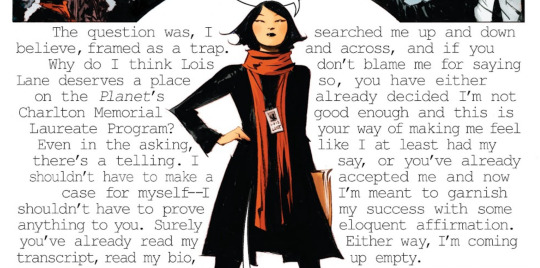
Lois' introductory panel is my personal favorite part of her characterization in American Alien. Lois proudly stands as a wall of text behind her recounts how she was considered as a winner for the Daily Planet's Charlton Memorial Laureate Program. When asked why she deserves a place on the program, Lois snaps back that the very question itself is loaded. She's listed her credentials and looks professional- so she's either already been rejected and is just being made to "at least had my say" or she's been accepted and is "meant to garnish my success with eloquent affirmation" to which Lois refuses to do either.
This is a great defiant introduction to Lois, showcasing how jaded she is with the way the world perceives her- but is very confident in her self worth as a journalist. By the end of the issue she reaches out to Clark to combine their exclusive interviews into one story to make a big impression on the news. Her words inspire Clark to seize an opportunity to make a big change in the world as Superman.
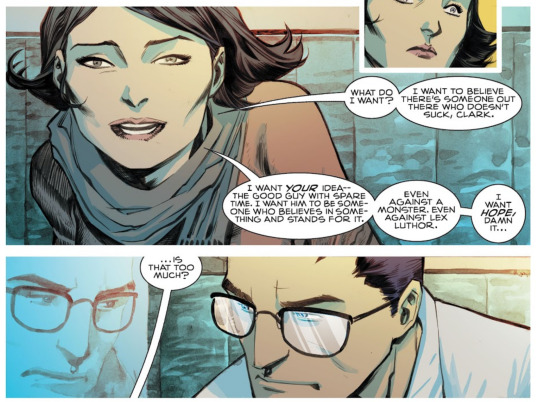
Afterwards, the comic plays the classic Superman and Lois dynamic straight. Lois is initially suspicious of Superman, but eventually comes around and is inspired to hope through him. There's a great back and forth between the two where Lois' words initially inspire Clark to be Superman, then Clark assures Lois that Superman is probably just a good guy, and when Clark loses hope from a bad day of heroism, Lois gives him hope again. In the end, Lois realizes her love for Clark Kent over Superman and they share a passionate ending kiss.
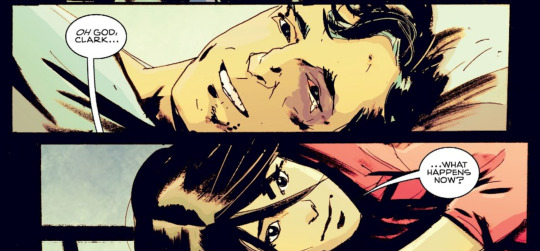
Overall American Alien nails the Clark and Lois dynamic and understands their relationship. I consider this Asian Lois "just okay". I like that we get to see an adult jaded Asian Lois meet Clark Kent and Superman, and see them get together. Similarly to Girl Taking Over, I'd like to see how this Lois and Clark would play out. My only issue with American Alien's Lois is a sense of missed opportunities.
The writing overall leaves room for plausible deniability over Lois' Asian identity. The artists (particularly Lee and Manapul) are doing the heavy lifting delivering Asian Lois. If she was drawn as a white woman, none of the writing would need adjustment. Sure her introductory panel implies that people judge her based on her appearance- but that could be just sexism instead of the intersectional experience of Asian Lois going through racism and sexism. Clark did assume she was a man after all- it's never specified if he assumed she was a white man. The only thing you'd lose is the metatextual shock value of Lois Being Asian This Time. That's really what this Lois boils down to, initial shock value with no specific writing to follow through. Her marginalization and identity is written broadly enough that it could be attributed to general sexism and womanhood. It's not specific to being an Asian American woman.
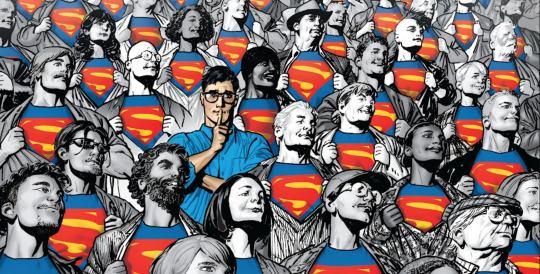
However, because of its broadness, there's room for Lois' Asian identity to be built on in the world of American Alien. The story centers Clark's experiences, but I can easily imagine a continuation of the story expanding on Lois'. The basic groundwork is there. I think it's telling that in a comic called American Alien, we get a more diverse Superman cast system. Jimmy Olsen is Black, Lois Lane is Asian- when Clark moves to the city it feels expansive compared to Smallville. It's a world that feels ready to tackle themes of racism if it was ever to continue (and probably in the hands of a writer with that kind of life experience!). In the end, there's room for this Asian Lois to be something special. Clark isn't the only American Alien in American Alien, if you catch my drift.
You can see how Girl Taking Over has a huge piece of what American Alien is missing. The characters aren't just diverse for shock value, they're not an aesthetic change over historically white characters. They have a story to tell that is inseparable from their identities. Whereas in American Alien, the art is doing the heavy lifting with the reimagined diverse characters- Girl Taking Over has both the writing and art carry the representation. Lois can't be changed into being white in Girl Taking Over.
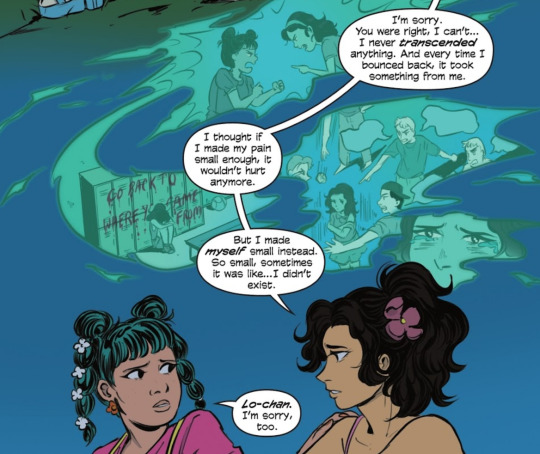
Both of these stories have potential- but if I had the choice to pick which story should continue, it would easily be Girl Taking Over. This graphic novel works for what it is: it makes sense that this is a younger and idealistic Lois that hasn't met Clark or Superman yet. It's a YA book and Lois can absolutely carry a story on her own. What I want as an Asian fan, is for the potential of Asian Lois Lane to be seen through to the point it's considered the definitive version. As of right now, Girl Taking Over is a fun twist on the Lois Lane story. Not something that is seen as inseparable from the Superman mythos. However! If those themes of marginalization and immigrant identity are tapped into for both Superman and Lois Lane? I feel that has the potential to radically strengthen the overall themes of Superman. It's certainly been touched on before.
(TW/CW: racial slur mention in below image)
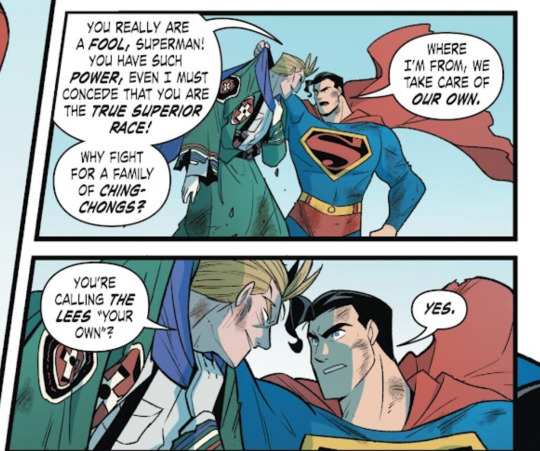
Superman Smashes the Klan by Gene Yang with art by Gurihiru is a retelling of the Clan of the Fiery Cross arc in the classic radio show The Adventures of Superman where Superman faces off with the Klan who had been terrorizing a Chinese American family. The graphic novel adapts the story to center the Chinese American characters, and makes it a point to show that Superman relates to them. If that dynamic was applied to Asian Lois, that feels like a definitive love story waiting to happen.

The classic two person love triangle with Clark and Lois is that Lois loves Superman and is indifferent to Clark Kent. She thinks Superman is this ideal macho man and Clark is a cowardly fumbling guy at work who rivals her. What happens when you take that dynamic and made it so Lois identified with Superman- the more othering identity? How complicated would that make Clark Kent feel? How would he navigate that when his marginalization isn't always visible? That's a whole new depth to the love triangle we're not used to seeing. I feel so far, none of these versions of Lois have touched upon this potential dynamic. The perpetual foreigner, Lois Lane and the ultimate alien foreigner that is Superman. The jaded city girl meets the alien farm boy who gives her hope. They inspire each other to be more of themselves in a world not ready to accept either of them.
Up next, we'll be discussing My Adventures with Superman's Korean Lois Lane in pt 2. It's well. You can probably guess how I feel about it from what I wrote here but welp. We'll talk about it.
#ramblings#media criticism#lois lane#once again please be nice!!#i have many many feelings about asian lois lane so i may as well write it down and share it with you#jesncin talks maws#(a little bit anyway! like a precursor)#jesncin dc meta
239 notes
·
View notes
Text
Kamala Harris is Black and South Asian American. Her father is Jamaican and her mother is Indian. She self-describes as “a Black woman of South Asian descent,” which makes sense for a woc who grew up in the black-white dichotomy of 1970s USA.
A lot of Americans view multiracial people (especially those with Black heritage) as caveats to the “model minority” myth. They only recognize her Indian heritage when it suits them. Racists will attribute their bigoted judgments of her to other Black people.
I don’t say this to garner her sympathy, only to warn against the trap of perceiving her (and other multiracial politicians) through this narrow lens.
I know she’s organized several speaking engagements with Asian and Pacific Islander constituents (APIAVOTE, AANHPI, APAICS). But I don’t have an accurate assessment of where she stands with non-Black constituents. Anyone with more experience in this area, feel free to add on.
66 notes
·
View notes
Text
So I need to get something off my chest about 'writing' and what a show is trying to do vs if the writing is the best to show that.
I haven't seen this complaint so much on Tumblr, but it has been brought up several times in a Discord server I'm in and I don't think there is the best place to address it (it might be taken as too political or an attack against specific people) but I really really needed to write out how I'm feeling about it.
So a massive complaint in this Discord is that the writing of the Acolyte is bad. The ones making this criticism claim that they like the ideas behind the show, but the execution with the writing is terrible and they need to get a whole new writing team for season 2.
So. Hmm. How to not get too in my feelings about that.
Let's take a look at who the writers are. We have:
3 men - 2 of which are men of color, the last I don't know enough about to say if he's part of a specific marginalized identity or not
and we have 7 women - Leslye who is openly queer, 3 black women, an asian woman, a trans woman and activist, and another who I again, don't know enough about to say if she's a part of a specific marginalized identity (other than her femininity) or not.
I didn't do deep dives on them, they're writers, so it's kind of hard to specifically find out 'hey, do you personally have a lot of experience with colonialism/religious trauma?' BUT I think that just baseline seeing how many women, people of color, and queer people there are on the writing staff and the way I could see so many extremely nuanced and real things on screen that I personally know about gives me a good idea about their own experiences/knowledge about such subjects.
Despite the claim that 'they like what the story is going for', the understanding of how the writers are telling that story isn't translating to everyone. I have a little suspicion as to what unites the people who 'don't get' the writing despite claiming to like what the show was going for. Kind of like how people 'liked what the civil rights movement was about, but those leaders and their methods? Get those out of here and accomplish the goals in a different way'. Or reading a classic and having no context for who wrote it or when the story was written and trying to judge it based on your own very limited understanding and claiming it's "bad" because you, personally, are just not aware of anything outside of your own world view.
It's important to be able to identify where your own understanding might be lacking - and acknowledging that just because YOU don't 'get it' doesn't mean that the writing is BAD. It just means... you don't get it. Personally, I don't get every single show made for a very specific audience - especially racialized comedies specifically for the race the writer/performer is. As an example, Dave Chapelle (horrendous transphobia aside) wrote a great deal of his material for his very specific audience of Black Americans. I personally, as a not-Black person, wasn't sure how to feel about some of his jokes - but what I DIDN'T do was say that he was bad and 'I get that he's making fun of his own community, but he should do it in a different way, maybe get a different writer'. Because I'm not the one equipped to judge that. I acknowledge that his comedy is outside my wheelhouse and honestly, for Chapelle's case when it comes to his racial jokes, I simply remove myself from the equation and just look to other Black people and how they react to his comedy to see if he's stepped over a line. (Also, when it comes to comedy, as he himself pointed out, some white people were laughing a little TOO hard at his jokes - I think that's mainly an issue with comedy and poking fun at yourself only to have someone not in your 'group' not take it as friendly ribbing but rather more malicious - and so he dialed it back).
Comedy is a bit different than any other media - I do think that comedy requires a lot more knowledge of the subject matter to know when the person is exaggerating, critiquing, or affectionately ribbing that is pretty important to know before internalizing what's said in the show. If you're not aware of that stuff, you might hear a stand-up routine and internalize a lot of really harmful stereotypes so I think it's ok to step away from comedy that isn't "for you" in a way that I don't think is particularly great for ALL types of media that isn't "for you".
With romance stories - I just don't get why a character would make all their decisions focused around getting a romantic partner, maybe I actively dislike watching/reading about that, but what I'm NOT going to do is say Jane Austen is a bad writer. I can point out things I disliked aside from the romance aspect or even larger writing critiques, but I'm not going to say that 'I see what she was going for, but get a different writer because I didn't get it'. Those stories were intensely personal to her and many people see themselves in the characters she wrote. Just because *I* don't get their motivations doesn't mean others don't.
So, examples aside, I think it's incredibly important that before we say 'the writing was bad', think about if maybe it's just that you don't have the meta understanding of the groups being highlighted in the story. It does give me the ick when people say to 'replace the writing table' on The Acolyte when the story trying to be told is of marginalized groups interacting with massive colonial institutions and the generational trauma that causes - and when you look at the writers....they are part of the groups affected by those issues, and the ones who are saying 'replace them'....aren't (largely).
When you 'don't get' something in media, especially if that media is telling the stories of groups you don't belong to, go to see what those groups are saying. There have been articles written about The Acolyte from the points of view of marginalized groups and meta posted around about how these irl subjects are being handled. In my opinion, as someone a part of such effected groups, I think the writers have done an incredible job with the show.
The main issue I think (good faith) people have is that DISNEY didn't give the show more time to tell its story, but then they lay the issues at the feet of the writers for 'not explaining enough' - but the things they want explained, largely I find are things that...were explained enough if you know the basics of colonization, missionaries, and generational trauma.
Other complaints I've seen boil down to "the show should have told me everything in order, clearly, and told me what to think about it and each of the characters - because I was left guessing, instead of using my own brain to think about it, I have decided it's bad writing because everything wasn't fed to me in a straightforward way" which again, isn't a fault of the writing, it's a flaw in the way you THINK all shows need to hand-hold you. Just because a show doesn't spoon-feed you the story and character motivations, doesn't mean the writing is bad.
Finally, I've seen critiques of the writing (and story) to the effect of 'it's a Star Wars story - it NEEDS to fit into the Star Wars box/expectations and if it doesn't, that means it's bad writing' - which again, kills diversity. You want surface-level inclusion where "yay! It's a woman doing bombings now! Cheer for her!" rather than "Look, it's a woman doing war-crimes and we're pointing out that war crimes are STILL wrong and here's other marginalized people fighting against that!"
So before claiming 'the writers need to be replaced', take a step back and look at why you feel that way, take a look at who the writers are and what story they were trying to tell, and first consider: maybe you just aren't knowledgeable enough about the subject matter. And just because it's not 'baby's first colonizer story', doesn't mean the writing is bad. Maybe you aren't the center of the universe for once and maybe its OK for you to feel a little behind in understanding - it just means there's new stuff for you to learn! Which is a good thing!
Obligatory explanation that all this doesn't mean that you can't critique the writing or that if you critique the writing that means you 100% are who I'm talking to in this post. All I'm saying is that maybe before having the knee-jerk reaction 'get rid of the writers', take a look at it from this perspective to see if you 'not understanding' isn't on the writers, it's on you and your life experiences not preparing you for such a story told in this way.
27 notes
·
View notes
Text
The Sign of the Four: The Statement of the Case
CW for the end of this as it includes discussions of child murder and detailed discussions of capital punishment.
Turbans have never been particularly common in the United Kingdom; these days, they are most likely to be worn by West African women or those who are undergoing chemotherapy.
It was the norm for a married woman to be referred to as "Mrs. [husband's name]", especially on something like a dinner invite. Historically, in the English common law system the United States also uses, a woman's legal identity was subsumed by her husband on marriage, in something called coverture. In some cases, a woman who ran her own business could be treated as legally single (a femme sole) and so sue someone - or be sued. This practice was gradually abolished, but did fully end until the 1970s.
@myemuisemo has excellently covered the reasons why Mary would have been sent back to the UK.
As you were looking at a rather long trip to and from India, even with the Suez Canal open by 1878, long leave like this would have been commonplace.
The Andaman Islands are an archipelago SW of what is now Myanmar and was then called Burma. The indigenous Andamanese lived pretty much an isolated experience until the late 19th century when the British showed up. The locals were pretty hostile to outsiders; shipwrecked crews were often attacked and killed in the 1830s and 1840s, the place getting a reputation for cannibalism.
The British eventually managed to conquer the place and combine its administration with the Nicobar Islands. Most of the native population would be wiped out via outside disease and loss of territory; they now number around 500 people. The Indian government, who took over the area on independence, now legally protect the remaining tribespeople, restricting or banning access to much of the area.
Of particular note are the Sentinelese of North Sentinel Island, who have made abundantly clear that they do not want outside contact. This is probably due to the British in the late 1800s, who kidnapped some of them and took them to Port Blair. The adults died of disease and the children were returned with gifts... possibly of the deadly sort. Various attempts by the Indian government (who legally claimed the island in 1970 via dropping a marker off) and anthropologists to contact them have generally not gone well, with the islanders' response frequently being of the arrow-firing variety. Eventually, via this and NGO pressure, most people got the hint and the Indian government outright banned visits to the island.
In 2004, after the Asian tsunami that killed over 2,000 people in the archipelago, the Indian Coast Guard sent over a helicopter to check the inhabitants were OK. They made clear they were via - guess what - firing arrows at the helicopter. Most of the people killed were locals and tourists; the indigenous tribes knew "earthquake equals possible tsunami" and had headed for higher ground.
In 2006, an Indian crab harvesting boat drifted onto the island; both of the crew were killed and buried.
In 2018, an American evangelical missionary called John Allen Chau illegally went to the island, aiming to convert the locals to Christianity. He ended up as a Darwin Award winner and the Indians gave up attempts to recover his body.
The first British penal colony in the area was established in 1789 by the Bengalese but shut down in 1796 due to a high rate of disease and death. The second was set up in 1857 and remained in operation until 1947.
People poisoning children for the insurance money was a sadly rather common occurrence in the Victorian era to the point that people cracked jokes about it if a child was enrolled in a burial society i.e. where people paid in money to cover funeral expenses and to pay out on someone's death.
The most infamous of these was Mary Ann Cotton from Durham, who is believed to have murdered 21 people, including three of her four husbands and 11 of her 13 children so she could get the payouts. She was arrested in July 1872 and charged with the murder of her stepson, Charles Edward Cotton, who had been exhumed after his attending doctor kept bodily samples and found traces of arsenic. After a delay for her to give birth to her final child in prison and a row in London over the choice the Attorney General (legally responsible for the prosecution of poisoning cases) had made for the prosecuting counsel, she was convicted in March 1973 of the murder and sentenced to death, the jury coming back after just 90 minutes. The standard Victorian practice was for any further legal action to be dropped after a capital conviction, as hanging would come pretty quickly.
Cotton was hanged at Durham County Goal that same month. Instead of her neck being broken, she slowly strangled to death as the rope had been made too short, possibly deliberately.
Then again, the hangman was William Calcraft, who had started off flogging juvenille offenders at Newgate Prison. Calcraft hanged an estimated 450 people over a 45-year career and developed quite a reputation for incompetence or sadism (historians debate this) due to his use of short drops. On several occasions, he would have to go down into the pit and pull on the condemned person's legs to speed up their death. In a triple hanging in 1867 of three Fenian who had murdered a police officer, one died instantly but the other two didn't. Calcraft went down and finished one of them off to the horror of officiating priest Father Gadd, who refused to let him do the same to the third and held the man's hand for 45 minutes until it was over. There was also his very public 1856 botch that led to the pinioning of the condemned's legs to become standard practice.
Calcraft also engaged in the then-common and legal practice of selling off the rope and the condemned person's clothing to make extra money. The latter would got straight to Madame Tussaud's for the latest addition to the Chamber of Horrors. Eventually, he would be pensioned off in 1874 aged 73 after increasingly negative press comment.
The Martyrdom of Man was a secular "universal" history of the Western World, published in 1872.
29 notes
·
View notes
Text
thg/tbosas ocs on wattpad
I don't think I ever showed you guys my ocs on wattpad... lmao! aka, my main writing platform. find me @ disk4rte!
I wanna write shorter stuff and aus on ao3, hence the creation of diiwata <3
they're character x oc fics... SUE ME. these are ocs I made for tbosas and one for thg! their moodboards are not cohesive b/c they're different fics (with the exception of 2 ocs)!
CAN'T REMEMBER TO FORGET YOU -> finnick odair
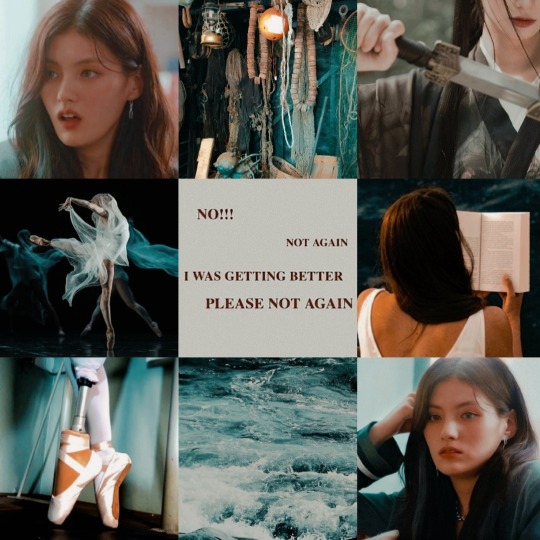
nerissa hong: victor from district 4 (66th games). l/i: finnick odair (current), davy kumar (prev). fc: kim yongji.
probably my most devastating tbh... after a terrible earthquake (known as the big one) devastates district four, they haven't had careers OR a victor in a hot minute (with the exception of finnick). after her best friend gets reaped, nerissa bravely volunteers... but the boy she's loved quietly -- davy kumar -- gets reaped alongside her, and no one volunteers for him. she ends up killing him (without meaning to) after a devastating confession on the last day of the games. the capitol has a way of warping her story, making her out to be a capitol sympathizer. in the end, the entire district grows a hatred for her because of this, and because she killed their "favored victor". she learns to put on a performance to keep her loved ones safe, and finnick acts along with her.
this fic plays around with propaganda as it explores district four unlearning what the capitol taught them, but also forming such a hatred for the capitol that they turn on a teenage girl (aka her). this is so where I got the idea of an asian d4! while this fic is a finnick/oc fic, it mostly focuses on nerissa's navigation of victor-hood. I'm especially proud of the worldbuilding I did here since it's inspired by my cultural experiences as an asian-american.
about nerissa:
her name means "sea nymph". she also shares a name with a shakespeare side character from "merchant of venice" who tricks her lover and taunts him about it. it mirrors her reputation with her home district.
her left foot was amputated as a result of her final battle with her district partner.
was a middle child (until snow made an example out of her father and brother after she tried to defend herself on live television). and she has a younger sister, coralie. her mother died during the big one.
she's in the merchant class and was a dancer that performed for d4 festivals. her father owned a repair shop, where she and her older brother worked.
her "talent" is cooking. every hunger games, she's forced to do a cooking segment with claudius templesmith.
she's two-ish years older than finnick odair (technically 14 months), and he was her mentor. she gets bitter about this fact sometimes because... what does a freshman know about winning a death match?!?
"O CHILDREN" -> reaper and treech (2 protags)
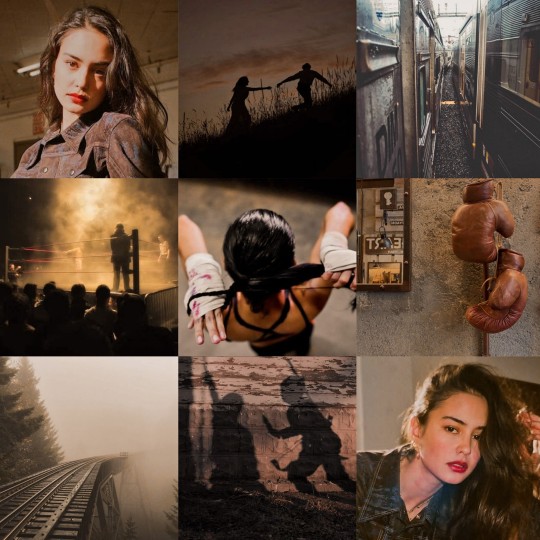
chassis harbin: exporter and boxer from district 6. l/i: reaper. fc: courtney eaton.
her biological mother was a rebel, but was killed after finding out the betrayer in the district 6 rebellion group. now, she lives in neglect as her father builds a family of his own with a woman she'd never consider her stepmother. she only worked as an exporter that sent goods to the eastern districts of panem, but after a physical (and bloody) altercation in an alleyway, the peacekeepers who capture her give her two options: get thrown in prison and executed, or join an illegal boxing ring for their entertainment... you can guess which one she chose. her job as an exporter led her to find the secret love of her life: a tame, shy delivery boy named reaper ash. the boxing ring is more sinister than they make it out to be, which is something that she finds out after her name gets called in the 10th hunger games.
she is one of the two protagonists of the fic!!! she and cariad are best friends that keep in touch via letters and phone calls. she's on the poorer side while cariad had always been better off than her. I call the poorer side of d6 "farren heights", while the wealthy neighborhood is "peregrine court"!
about chassis:
her name is a part of a car/train. it's essentially the metal framework of the car/train.
she has half siblings, twin boys named coupler and cams. they're named after train parts. although they're not entirely blood related to her, chassis thinks of them as her own sons sometimes.
she became an exporter at the age of 13, which was also the age she met reaper. love at first sight things.
chassis is friends with two exporters: ginnee, who's her neighbor and co-worker, and trek, an oc that's the son of their boss.
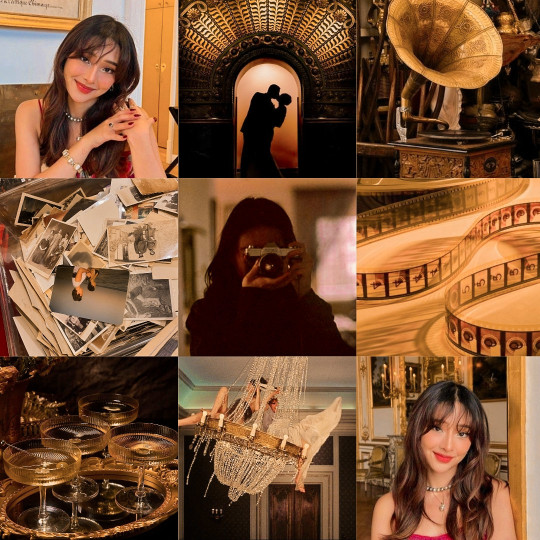
cariad landas: capitol transplant from district 6. l/i: treech. fc: melizza jimenez.
cariad moves to the capitol after her mother stole the plans of a new type of fuel from her own district rebellion group, and sold them to the capitol. when found out by chassis' mother, mrs. landas kills her. she goes to the capitol academy, but instead of being outspoken like her sejanus, she becomes a ditzy airhead sort of character that she named "caroline winters". with this persona, she is able to make it into their inner circle and learn all sorts of secrets. but because of this, cariad doesn't feel that she forms very authentic or personal relationships and flits between friend groups (and significant others) to feel fulfilled. going on vacation in d7 is quite fulfilling, especially when she meets a worker named treech.
the other protagonist!! in this fic, I try to explore class differences as well as privileges that not only chassis lacks, but also cariad in the capitol. I also couldn't decide if I wanted to write for reaper or treech, so I made it both.
about cariad:
her name means "love" in welsh (allegedly), but I also like that it includes the word "car".
cariad absolutely loves photography. she is gifted one upon her arrival to the capitol by her father.
although she moves around friend groups, cariad's main friends are clemmie, lyssie, persephone, sejanus, and dennis. they're all in different friend groups, though.
she's a year older than treech. they meet because she paid him to help her escape her mother. cutesy!
MÁGOA
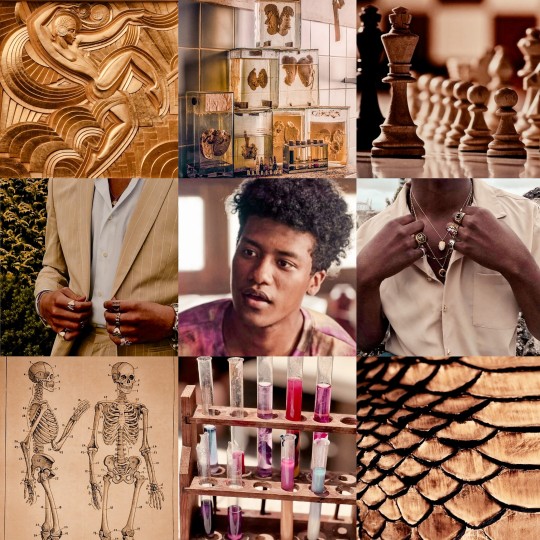
asclepius gaul: academy student and nephew of volumnia gaul. l/i: clemensia dovecote. fc: han hyunmin.
asclepius is orphaned by the war after his parents, according to his auntie vee, were assassinated by rebels. he's lived with her ever since, but he also spent time with the family on his mother's side (he prefers their company). his aunt is terrible, and he considered his avox, avelot, to be more of a mother. asclepius was dating clemensia dovecote, but after he himself had an encounter with dr. gaul's snakes, his change of demeanor showed clemmie a violent version of him that scared her into breaking up with him. with his aunt growing desperate, the 10th hunger games brings about the concept of mentors and the idea of spectacle. while he enjoys seeing his aunt scramble around to revive her games, asclepius doesn't enjoy the fact that his ex had suddenly missed out on the action.
this is a second chance romance that's centered around acceptance and learning how to let people into your heart. asclepius is a child prodigy trying to find out the cure to his snake scales, and with clemmie sick b/c of the same reasons, it motivates him to find his cure faster.
about asclepius:
asclepius is the greek god of medicine and is often portrayed with a serpent coiled around his staff. people call him "clee" for short!
because he didn't die from the earlier prototypes of the rainbow snakes, gaul used his blood to formulate the antidote that saved clemmie from dying.
before the venom, he was geeky, timid, and accepted the ab*se from his aunt. after, he became bolder, and feared his aunt less.
he and clemmie remain civil in front of their classmates, but their friends always seem to catch on that they miss each other.
#finnick odair#reaper ash#treech tbosas#clemensia dovecote#eddie is writing (swear)#fic: can't remember to forget you#fic: o children#fic: mágoa#I'M SCARED OF FEEDBACK AHH
29 notes
·
View notes
Text
Turtles Catches Up With Old GMMTV: The Bad Buddy Rewatch Edition, Part 3a -- BBS and Asian Cultural Touchpoints
[What’s going on here? After joining Tumblr and discovering Thai BLs through KinnPorsche in 2022, I began watching GMMTV’s new offerings -- and realized that I had a lot of history to catch up on, to appreciate the more recent works that I was delving into. From tropes to BL frameworks, what we’re watching now hails from somewhere, and I’m learning about Thai BL's history through what I’m calling the Old GMMTV Challenge (OGMMTVC). Starting with recommendations from @absolutebl on their post regarding how GMMTV is correcting for its mistakes with its shows today, I’ve made an expansive list to get me through a condensed history of essential/classic/significant Thai BLs produced by GMMTV and many other BL studios. My watchlist, pasted below, lists what I’ve watched and what’s upcoming, along with the reviews I’ve written so far. Today, I offer the first half of the third (ha!) of five posts on Bad Buddy. I'll look today at themes that myself and fellow Asian fans of Bad Buddy have caught and related to in this wonderful show.]
Links to the BBS OGMMTVC Meta Series are here: part 1, part 2, part 3a, part 3b, and part 4
As a lifelong viewer of Asian dramas, and as an Asian-American myself, I know why I'm drawn to Asian dramas. We all have our reasons for belonging to this widespread fandom, whether you're watching queer or het Asian dramas, consuming Asian music, all of it.
What are my reasons? The first and foremost one is relatability. Especially in Asian dramas, I relate to the spoken and unspoken communication of the dramatic characters as they navigate life's highs and lows. I relate to the way Asian dramatic characters engage with their families, their partners, their children, their colleagues, the world and societies around them. I relate to the ways in which societies are drawn and constructed, to the economic and emotional pressures that characters face. As an American -- I don't fully relate to the majority of experiences that white American characters face dramatically, because I'm not a part of the majority. As an Asian? I get almost all of what Asians are going through in dramatic art (save for, say, Korean or Japanese historicals, ha — but I do indeed get Asian patriarchy and sexism).
I'm not queer -- I am a cishet Asian woman -- but what I appreciate about queer Asian media is, very often, the media's tendency to not be shy about the various and intricate ways that discrimination, sexism, trauma (intergenerational, emotional, etc.), and many more social and emotional phenomena interplay in an individual's life.
When I first watched Bad Buddy, I had the strong sense that what I was watching was incredibly relatable to much of my upbringing and life as a young adult, working out issues vis à vis my family and my eventual partner. Bad Buddy, thematically, captured a tremendous amount of the realities of everyday Asian life for young people.
Bad Buddy exists in the GMMTV bubble of No Homophobia (cc @bengiyo and @lurkingshan, as we have spoken about the GMMTV bubble). However, what Bad Buddy didn't shy away from were explorations of many other social/emotional/cultural themes and frameworks of everyday life, from sexism, to youth bias, to boundaries and enmeshment, and many, many more.
I wrote in my first-ever Bad Buddy thesis that the framework of intergenerational trauma was the main theme I identified -- and identified with -- in the show. But, as I was contemplating writing this series of Bad Buddy meta posts, I wanted to know: what did my fellow Asians pick up in this show that they saw, and that they related to? In other words: what makes Bad Buddy particularly special to Asian fans of the show?
So, I did a thing. I gathered together a few BBS Asian stans, like myself, for a lengthy (and still ongoing!) discussion about what we related to in Bad Buddy. I want to thank, from the bottom of my heart, @telomeke, @grapejuicegay, @recentadultburnout, @neuroticbookworm, and @lurkingshan (who's not Asian, but has Asian relatives, and gets us!) for being up for creating a spontaneous mini-village together to talk Bad Buddy and its inherent Asianness.
It sounds redundant to identify Bad Buddy, a show made by Thais and set in Thailand, as an "Asian" or "Thai" show. It's definitely not a show that steps back to take a look at itself and say, "oh hey, this is really 'Thai,' what we're doing here." When I asked @recentadultburnout directly about what they might have identified as uniquely Thai about Bad Buddy, RAB thought about it and said -- maybe Pat's ranak ek (Thai xylophone). Other shows of Aof Noppharnach's, including He's Coming To Me, Moonlight Chicken, and even the start of Last Twilight, highlight many facets of Thai life, from the spiritual to the everyday-cultural (even Gay OK Bangkok does this a bit, too). But Bad Buddy doesn't really go there by way of overt symbolism and/or specifically Thai spiritual/cultural practice.
The Asianness of Bad Buddy is far more inherent. It is rooted and coded in the way people interact with each other.
An overt example occurs in episode 10, when Dissaya confronts Ming in the Jindapat home, and announces that she will reveal Ming's secret, dropping the effort she has made her entire life to "save face" -- her reputation AND Ming's reputation.
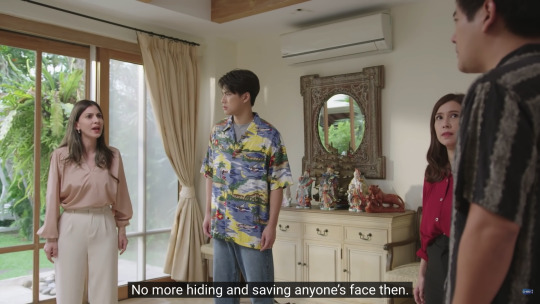
During my first Bad Buddy rewatch, I was so moved in fury by this scene that I had to blog about it as if I had never seen it before. There's so much encapsulated in this moment: the pressure that Dissaya has put on herself to keep the embarrassing secret that she lost a scholarship; the effort she made to keep Ming's theft of the scholarship a secret, to save his face, and the secrets she kept from Pran to save her face, and to keep up the façade of rivalry between the Jindapats and the Siridechawats. She was letting a whole hell of a lot loose in this moment, because the eternal pressure of saving face in Asian societies is, frankly, never-ending.
"Saving face" is an incredibly important notion in many Asian collectivist cultures. Saving face is about an individual or a family projecting an image of calm, cool collectedness and success, in order to not make waves within a collectivist society for any reason. If you are not working to seem like you are going with the flow of life, if you're not keeping up with the Joneses, the Kardashians, whoever -- you are not saving face. If you are in poverty, and are projecting an image of poverty, instead of pretending to be more wealthy than you are -- you are not saving your face or your family's face. If you allow yourself to get publicly defeated -- you are not saving face. Dissaya gave up a lot of her hard-earned reputation in the moment she confessed the truth in front of Pat and Pat's mother.
My Asian friends and I can click wordlessly into understanding the pressure of saving face; say that I didn't get good grades in school? I wouldn't be saving my parents' face. This kind of pressure to keep up with particular social dynamics within and external to family, within Asian societies, is a neverending drumbeat of pressure.
Besides saving face, there are many other Asian cultural touchpoints that were contained within Bad Buddy that my fellow Asian BBS stans and I noted. They include:
1) intergenerational/inherited trauma, 2) the unique nature of secret-keeping in Asian cultures/societies, 3) enmeshed family boundaries, 4) setting up children to compete against each other for the sake of familial pride, 5) patriarchy, sexism, and the reversal of sexism among next generations, 6) the inset/assumed roles of family members based on patriarchy and elder respect, 7) Assumed community within and external to one's family, usually based on where you live and where you go to school, 8) How one's identity is defined based on patriarchy and individualist vs. collectivist cultures, 9) How various cultures within an Asian nation live peacefully (or not) together (for example, what makes Pat and Pran different by way of Pat's Thai-Chinese heritage vs. Pran's ethnic Thai heritage),
and many, many more.
It'll be impossible, even over two posts, to analyze all of these cultural touchpoints, but a few of them engendered quite a bit of conversation among the BBS mini-village that I want to highlight. In this post, I'll focus on the continuation of my first BBS thesis on intergenerational/inherited trauma, the nature of secret-keeping in Asian societies, and will return briefly to the touchpoint of saving face.
One of the most devastating scenes for me in Bad Buddy is in my favorite episode, episode 10, when Pat (after he's learned, throughout the episode, of the extent of the lies that his and Pran's family have shared with their children) confronts his father about his father's demands to literally control Pat's emotions, the way in which Pat related to other people -- specifically Pran. Pat sums up a lifetime's worth of control in one sentence.
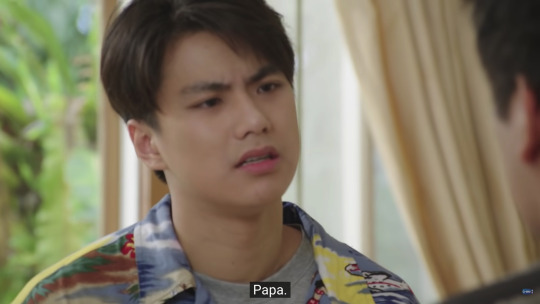
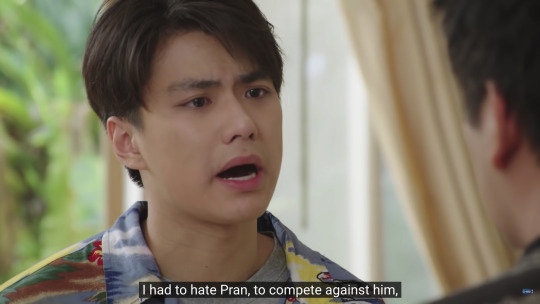
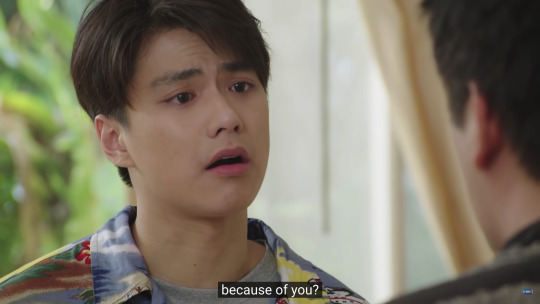
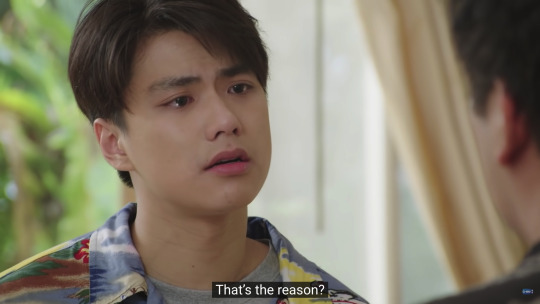
@telomeke noted in our ongoing group conversation that this notion of inherited trauma vis à vis Ming is particularly present in Asian societies, not just by way of familial expectation that we, as Asians, embody it and "take it" throughout our generations, as Pat realized up above -- but that ALL family members present are responsible for playing their roles within the framework of the inherited trauma. @telomeke noted in particular that exactly what Pat was doing to hate Pran, FOR his father? That was what Ming HAD to do for MING'S dad, when Ming schemed to get the scholarship from Dissaya. AND, Pat's mother, in consoling Pat, had to play the role of explainer -- which, as we know now, Pat ran away from to meet his beloved Pran on the rooftop before running away to the eco-village.
Pat running away from that moment? That was a huge symbol of the breaking of the inherited trauma that was given unto him by his parents both.
(@telomeke has actually written about their theory about how the Jindapats and Siridechawats ended up living next door to each other -- which seems SO STRANGE on the surface, consider Ming's and Dissaya's boiling hatred for each other -- and the theory links nicely within the framework of inherited trauma. Tel theorizes that Ming's father or grandfather may have actually gifted the house to Dissaya's family as a means of apologizing for Ming's deceit. In which case: the presence of the Siridechawats is a reminder, on an everyday basis, of Ming's folly to steal from Dissaya, which may explain why Ming in particular went so hard on Pat to triumph daily over Pran.)
We as a group unwound quite a bit on the nature of secret-keeping in Asian cultures. We know Bad Buddy relies on this cultural touchpoint at the end of the series: Pran and Pat have a full-fledged and committed relationship as a transparent secret, under the noses of Pat's and Pran's parents.
Secret-keeping....oh, man. I could not have lived a fully authentic life in America if I didn't keep a million secrets from my family while I was living out my own independent choices. I actually, literally, could not have gotten married, because the rule of my household was that I wouldn't date. I would just... get engaged. So I'd get engaged through, what, magic? Match-making? No: I'd have to find my partner through my own battle of social and familial conventions, literally against my family, to get to where I wanted to be in life, which was (gasp) married.
@neuroticbookworm illuminated more on this particularly from our shared Indian lens. She wrote,
Keeping your relationship secret from parents is sooooo ridiculously common in India (and I'm sure we can extrapolate to other Asian countries like Thailand). And the justification the children give themselves is always rooted in how they have a "duty" towards their parents, and that they will reveal their relationship after they have fulfilled their duties.
God, I LOVED that NBW brought up "duty" in this conversation. Because! Assumed within the coded language from Asian parents to children, and vice versa, is a sense that children MUST follow the dictates of their parents. 100%, full-stop.
The duties that NBW clarified in this particular conversation specified life demarcations such as "[w]hen I graduate, I'll tell my parents about my partner," and "[w]hen I graduate and get a job and can financially support myself in life, I'll tell my parents about my partner."
What's coded in these statements is a fear that the children will have to reveal to their parents that they were disobedient in the rules their parents set, that no dating shall occur until the time at which the parents rule it's okay. And at least within Indian frameworks, that period of it being "okay" is, more often than not, the period in which arranged matches are examined. Because, yes, that's still the rule in the high majority of Indian culture.
The revelation of that disobedience? That's bad-news bears. It indicates... everything: a lack of loyalty to the family; a lack of understanding the meaning of a child's role to listen to the parents as the parents are elders and therefore are the moral authority of the household; a lack of self-control (which is a huge deal -- that relates to saving face on behalf of the family); a lack of understanding the morals and ethics of saving oneself, in love and sex, before marriage, etc. Even if a family seems fully progressive on the outside, as an Asian, I'm conditioned to question that progressiveness -- as parents may hold different standards of acceptance for their children vs. other young people.
@telomeke expanded on disobedience for us -- connecting it back to the very important notion of "saving face."
I think there's something quite related to secret-keeping, but it's also to do with the ability of Asians, but also human beings in general, of being able to live with duality in life... and secret-keeping is part of it. This also ties in to the East and Southeast Asian preoccupation with the concept of "saving face" [as noted above]. A lot of families are able to live with the knowledge of dirty secrets, unsavory truths, as long as it's not brought into the light and confronted. I'm constantly reminded of this whenever I rewatch BBS Ep. 12 because it's clear both Ming and Dissaya KNOW their sons are in a relationship but it's not overtly admitted. In that way they (and more Ming I suppose) get to "save face" and not have to deal with the truth that their sons are being disobedient, consorting with the enemy, and because it's not in the open -- there is no dishonor brought to the family and to the elders.
God, I love the way Tel put this. That disobedience on the part of Pran and Pat would actually bring dishonor to their families -- because their families have put SO MUCH EFFORT into building their public AND private enmity their entire lives! It affected Chai's relationship with the families as an employee of both families. EVERYONE AT PAT'S AND PRAN'S SCHOOLS knew the guys were the "legendary rivals." And, of course, by being in rival faculties at the same university, the boys could continue this public enmity as well -- keeping up with the roles that were literally assigned to them by their parents.
If the boys disobeyed, they would bring dishonor to their families. Think about that -- and connect that with the heaviness that Pran walked away with after the rooftop kiss in episode 5, AND the weight of Pran's breakdown at the end of episode 10, when Pat assured him that they would run away together.
No matter what a Western viewer (and maybe even Asian viewers, wanting to see a dismantling of these paradigms) would want Pat and Pran to have by way of full openness of their relationships with everyone in their lives (because, in individualistic cultures, that self-driven openness is a given), Pran and Pat themselves knew that that couldn't be their reality vis à vis the social worlds they belonged to. So they kept their relationship a secret, in the end.
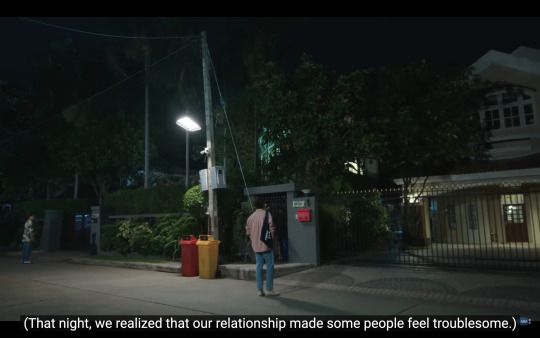
The secret that Pran and Pat keep about their relationship is strategic. It's certainly also a stress point: an older Pat asks an older Pran, at the end of episode 12, if he'll ever be able to walk through the front door of the Siridechawat house.
But this is the compromise -- within the larger-scale culture of secret-keeping in Asian societies, AND the private frameworks of the enmity that Dissaya and Ming established between themselves and their families years and years prior -- that will work best for Pat and Pran to preserve the sanctity of their relationship, which I talked about in part 2 of this meta series.
Pran and Pat do not have to publicly appear disobedient to the demands and pressures of their families. They do not have to make their families engage with each other. They do not have to make their families confront the mistakes that their parents made earlier in their lives. They can protect their families from their private and public follies. They can help their families keep and save face. And by doing all that? They can prevent their relationship from being threatened.
I feel this very deeply in my heart as an Asian-American. For the sake of my American spouse, I wanted to protect him from a lot of these pressures, and so I insisted on keeping a lot of our relationship secret from my folks. If I demanded full-blown, public acceptance from my parents? If I brought my "boyfriend" to parties, and introduced him as such with aunties and uncles -- especially if it wasn't indicated that we'd be permanent one day? Damn. No. I'd be embarrassing my folks, with the aunties and uncles saying to my folks, "dang, you can't control your daughter, huh? You let her do what she wants." That would mean my parents would lose face over their ability to control the lives of their children, and that's no bueno in our cultural terms. It would be on ME, as THEIR child, to uphold THEIR ability to save face, as much as its their own work.
Dissaya refers DIRECTLY to Pran doing this FOR HER when, in episode 10, she asks him, "did you forget to save my reputation?" It's brutal, daily work. And Pran goes BACK to keeping secrets in the end, because it would have been impossible, ultimately, for Dissaya to save face, AND for Pran to save Dissaya's reputation/face, if Pran were out with his relationship with Pat, thus proving his disobedience. It would be -- JUST -- better to keep the secret for all those involved.
As this post has gotten long, I'm going to continue talking more about these touchpoints in a second post. I'm driven to talk about this because I think much of the Western fandom might miss what us Asians are reading into shows like Bad Buddy through this coded language and engagement. I very much posit that Bad Buddy -- while it is first and foremost a queer show, made by queer Asians, about queer young men -- is so relatable to so many of us because we've faced similar struggles of survival, and we've faced threats to the sanctity of the love we have for other people by way of needed to fit into the roles set before us by previous generations.
So! With that, thank you for reading, and see you tomorrow, when I focus on competition, enmeshed family boundaries, patriarchy and sexism in Bad Buddy, and more if I can fit it in!
(Tagging @dribs-and-drabbles, @solitaryandwandering, and @wen-kexing-apologist by request! If you'd like to be tagged, please let me know!)
[Alright! Stay tuned for more, many more ruminations from the BBS Asian station tomorrow!
Here's the status of the Old GMMTV Challenge watchlist. Tumblr's web editor loves to jack with this list, so mosey on over to this link for the very latest version!
1) The Love of Siam (2007) (movie) (review here) 2) My Bromance (2014) (movie) (review here) 3) Love Sick and Love Sick 2 (2014 and 2015) (review here) 4) Gay OK Bangkok Season 1 (2016) (a non-BL queer series directed by Jojo Tichakorn and written by Aof Noppharnach) (review here) 5) Make It Right (2016) (review here) 6) SOTUS (2016-2017) (review here) 7) Gay OK Bangkok Season 2 (2017) (a non-BL queer series directed by Jojo Tichakorn and written by Aof Noppharnach) (review here) 8) Make It Right 2 (2017) (review here) 9) Together With Me (2017) (review here) 10) SOTUS S/Our Skyy x SOTUS (2017-2018) (review here) 11) Love By Chance (2018) (review here) 12) Kiss Me Again: PeteKao cuts (2018) (no review) 13) He’s Coming To Me (2019) (review here) 14) Dark Blue Kiss (2019) and Our Skyy x Kiss Me Again (2018) (review here) 15) TharnType (2019-2020) (review here) 16) Senior Secret Love: Puppy Honey (OffGun BL cuts) (2016 and 2017) (no review) 17) Theory of Love (2019) (review here) 18) 3 Will Be Free (2019) (a non-BL and an important harbinger of things to come in 2019 and beyond re: Jojo Tichakorn pushing queer content in non-BLs) (review here) 19) Dew the Movie (2019) (review here) 20) Until We Meet Again (2019-2020) (review here) (and notes on my UWMA rewatch here) 21) 2gether (2020) and Still 2gether (2020) (review here) 22) I Told Sunset About You (2020) (review here) 23) YYY (2020, out of chronological order) (review here) 24) Manner of Death (2020-2021) (not a true BL, but a MaxTul queer/gay romance set within a genre-based show that likely influenced Not Me and KinnPorsche) (review here) 25) A Tale of Thousand Stars (2021) (review here) 26) A Tale of Thousand Stars (2021) OGMMTVC Fastest Rewatch Known To Humankind For The Sake Of Rewatching Our Skyy 2 x BBS x ATOTS (re-review here) 27) Lovely Writer (2021) (review here) 28) Last Twilight in Phuket (2021) (the mini-special before IPYTM) (review here) 29) I Promised You the Moon (2021) (review here) 30) Not Me (2021-2022) (review here) 31) Bad Buddy (2021-2022) (thesis here) 32) 55:15 Never Too Late (2021-2022) (not a BL, but a GMMTV drama that features a macro BL storyline about shipper culture and the BL industry) (review here) 33) Bad Buddy (2021-2022) and Our Skyy 2 x BBS x ATOTS (2023) OGMMTVC Rewatch (The BBS OGMMTVC Meta Series is ongoing: preamble here, part 1 here, part 2 here, more reviews to come) 34) Secret Crush On You (2022) (on pause for La Pluie) 35) KinnPorsche (2022) (tag here) 36) KinnPorsche (2022) OGMMTVC Fastest Rewatch Known To Humankind For the Sake of Re-Analyzing the KP Cultural Zeitgeist 37) The Eclipse (2022) (tag here) 38) GAP (2022-2023) (Thailand’s first GL) 39) My School President (2022-2023) and Our Skyy 2 x My School President (2023) 40) Moonlight Chicken (2023) (tag here) 41) Bed Friend (2023) (tag here) 42) Be My Favorite (2023) (tag here) 43) Wedding Plan (2023) 44) Only Friends (2023) (tag here)]
#bad buddy#bad buddy meta#bad buddy the series#bad buddy the series meta#backaof noppharnach#aof noppharnach#ohmnanon#ohm pawat#nanon korapat#patpran#pat x pran#pran x pat#the bbs ogmmtvc meta series#turtles catches up with old gmmtv#the old gmmtv challenge#ogmmtvc#turtles catches up with thai BLs#turtles catches up with the essential BLs#asian intergenerational trauma#intergenerational trauma#asian themes in bad buddy#saving face in asian cultures#asian cultural touchpoints in bad buddy
66 notes
·
View notes
Note
I heard I can fo it with a broken heart on the radio
And aside from the chorus being kinda awkward (I'm so depressed I act like it my birTHHHdaayyyyyYY)
I think this whole 'i sold you a lie you think I'm doing well but I'm not but I'm killing it so I'm a #girlboss try come for my job' is so embarassing
Because everything shes done over this last year I've thought 'theres a woman doing real bad'
Like I'm not trying to dispute the effort and energy that goes into touring like she does, but a lot of her decisions both professional and personally have made me think uh oh
Its giving 'could a depressed person do this?' But it's about dating the worst men on the planet and looking like shes going to cry on stage half the time
💌 come talk to me, a veteran swiftie in the anti- tag in the same way that martin luther still thought himself catholic
where i land with it lyrically is in conversation with four songs: "mirrorball" from folklore, "nothing new" from red TV, and two other ttpd tracks, "who's afraid of little old me" and "clara bow"
per the long pond sessions, she wrote "mirrorball" partially about COVID's effect on touring ("and they called off the circus, burned the disco down / when they sent home the horses and the rodeo clowns"). pair that with the much discussed WAOLOM asylum line and... it might be because she says "circus," it might be that while i have no personal experience of involuntary hospitalization i Do have basic empathy, but i think of the two great blond celebrity memoirs of the last few years: britney spears' the woman in me and jeannette mccurdy's i'm glad my mom died. which is all to say, she doesn't Have to do it with a broken heart! actually! "the asylum where they raised me" sounds like her pursuit of fame was coerced by say, a stage mom or an abusive contract or monetary need (it wasn't), if she was in an urgent health crisis like ICDIWABH suggests ("even when you wanna die"), she has all the power to postpone or cancel dates. she's not in a conservatorship, she's not being Made to tour; i can imagine feeling obligated to pay the hundreds of people it employs, but she is an actual billionaire, i think she can afford blue cross blue shield PPO plans for a militia. you can interpret "all the pieces of me shattered while the crowd was chanting 'more!'" as resenting the audience, but there's other performers in smaller venues with less freedom and power who need to be onstage to afford food. idk.
then there's the "try and come for my job:" extremely vague as to who is coming for it, and the popular reading is of other pop stars on tour. "clara bow" is my favorite track on ttpd by a long shot in part because it feels like a more mature version of "nothing new;" it's a little kinder to the ingenue and seems to respect her predecessors, recognize that She was the ingenue once, but it does not match up to her actual conduct in public. this is where i become very asian, but besides her being uhhh... pretty drunk at the grammys this year, i think her behavior is more a symptom of white american culture as egoistic and ahistorical—this is the kamala harris "you think you fell out of a coconut tree" meme, yes, but more broadly my complaint is filial piety. acting up in front of the likes of celine dion and tracy chapman and joni mitchell, especially on a night that celebrates all three of them, is absolutely unacceptable to me. they're your elders, they paved the path you're on (nothing new: "she'll know the way, and then she'll say she got the map from me"), but her teenage fans who've never heard any other music don't know or accept that she Isn't actually the progenitor of acclaimed women singer-songwriters
she wants to be seen as a "cool big sister" mentor to younger pop girls or boosting indie acts like boygenius, but afaik she herself hasn't shared the stage with an older female musician since alanis morrissette as a surprise guest on the 1989 tour. sure, she showed up to induct carole king to the rock 'n roll hall of fame, with a solo stage. but as much as people first cringed at luke combs' "fast car" cover, he acquitted himself with his grammy performance. there is true reverence there. if taylor brings stevie nicks (who wrote a poem?? for the ttpd physical editions) onstage at some point soon, i'll Maybe start to believe she doesn't see women over 40 as piles of dust she's either embarrassed to stand near Or, you know, who expose that she did not in fact fall out of a coconut tree, and have more stage presence sitting down than she does in sequins
#ask#this is an essay#because i am a swiftie!!!! okay!! i can criticize because i know her catalog better than both anti's and ass kissers#anti taylor swift#anti ttpd
21 notes
·
View notes
Note
Five year plan reader is so Indian coded with the way her family talks. I’ve never read a fic before and went “wow holy shit it’s like my family” but just the prologue managed to capture that. Especially talking about an aunt from your home country who’s just a little older than you who’s been thrust into a life with people she barely knows. That’s like my mother. Who came to America when she was 22 and had a baby at 24. Anyways all this just to say, thank you :))
Hi my love! Ahh im so excited! I’ve actually been waiting for someone to say something about that little tidbit so I’ve been squirming with anticipation! I started to ramble a bit so apologies! (There’s a tldr at the end if you’re just like girl, shut the hell up I’m not reading that lmao.)
First I did mean what I said on the content notes: Siggy is meant to be black coded but read as a WoC.
I’m half West African on my father’s side and there’s a very similar tradition of henna in many west african/muslim traditions.
With the Five Year Plan I really felt called to kind of dive into some of the specifically misogynistic and oppressive practices & pressures many brown and black communities uphold in order to maintain that cultural connection outside of their countries of origin.
This story came about when I was talking to my sister about my estrangement with my father and his side of the family because of his family’s disapproval of me being born out of wedlock to a black American woman and non-Muslim. We’d been talking about how my father told my mother before I was born that he wanted me to undergo female genital mutilation as was tradition in Senegal and that got me thinking about all the cultural pressures (like arranged marriages) that I missed by being born to an American woman in America.
Still I’m really happy you could identify with the experience I described with the prologue!!! I specifically made it vague like that so other women of color could connect and see themselves. I just didn't want to muck things up by exploring a culture outside of my own, especially when I try to unpack some of my own trauma in my work (it's what drives the emotion I describe in each thing) so I’m leaning on my limited memories of my father and research about West African traditions for some of Siggy's background.
I’ve always had a appreciation for South Asian culture and It’s so crazy to me the overlap a lot of brown/black communities have! I will continue to try and keep things coded so that you and others can relate with this particular fanfic. My interest is in sociology and intersectional feminism and the particularly intricate form of oppression WoC face like femicide, age gap marriages/child marriages and honor killings, so yeah i know it’s fanfiction but I’ll always find a way to yap about my interests!
If you’d ever like to come off anon and chat with me on your experiences or some things you’d love to see addressed in a form of media then my inbox will always be open! Thank you from the bottom of my heart for reading!!!
TLDR: happy you see yourself reflected in the prologue, West African cultures have a similar henna tradition but I will always keep it vague in this story so brown women can relate; I like to yap about female oppression in poc communities so I’m so pumped I hit the target so far :')
#yeah sorry i rambled per usual#very big fuck you to my father btw#but at least he inspired the 5 yr plan#and kyle garrick bcuz im in love with him#the five year plan#asks
15 notes
·
View notes
Text
reading updates: september 2023
AHOY EVERYBODY!!! the end of the month has really crept up on me and lo, I have no finished as many books as I thought I would by this point! but so it goes.
also I'm fighting for my life trying to get through all of the library books I have checked out, which is a bummer because there are a bunch of creepy books I want to start reading for Spooky Month! but time is an illusion and I've already made my peace with Spooky Month extending into November, so whatever happens happens, babey! but that's the future, right now we need to talk about what I've been reading for the past month.
A View from the Bottom: Asian American Masculinity and Sexual Representation (Nguyen Tan Hoang, 2014) - Nguyen's dissertation is a really fascinating piece of queer scholarship, which gets deep (pun somewhat intended) into forms of media often overlooked by academia - gay porn, softcore art films, gay indie documentaries - in search of a new understanding of Asian masculinity and bottomhood. I really like Nguyen's thoughtful study of bottoming, effeminacy, and sexual abjection, all of which he's pretty in favor of, balanced with analyses of the factors of race, class, nationality, and citizenship that complicate how gay Asian men are perceived. it's wide-ranging, it's meticulous, it's kind of hot? I love you, queers in academia.
"You Just Need to Lose Weight" and 19 Other Myths About Fat People (Aubrey Gordon, 2023) - god, okay, listen: this book was a little dry TO ME but ONLY BECAUSE I have already spent years listening to Aubrey Gordon discuss all 19 of these myths and a bunch of other shit on her excellent podcast, Maintenance Phase. if you don't listen to Maintenance Phase either start doing that or read this book! which is extremely well-researched and great for debunking pretty much every "justification" a person might off to try and make their fatphobia sound reasonable. frankly if I could load up copies of YJNTLW into, like, a t-shirt gun to just have on standby to fire at people, I would do that.
Sorry, Bro (Taleen Voskuni, 2023) - yeah you all already know about this book, which is the one in which a 27 year old brings the narrative to a screeching halt to assure the readers that it's okay for her to hook up with a 31 year old woman because despite the so-called age gap both of their brains are fully-cooked. that's not actually the worst part of this book; the worst part is that the prose is unpolished in the extreme and the main character is kind of a dumb asshole. cannot say I recommend it, no matter how desperate you may be for bisexual Armenian representation.
Brown and Gay in LA: The Lives of Immigrant Sons (Anthony Christian Ocampo, 2022) - I really like the way Ocampo writes his nonfiction, which is very chatty and extremely accessible (if a little prone to editorializing). I love seeing sociologists writing from the community the community they live in, and these interviews come from second generation queer Latino and Filipino men frequenting the same LA clubs and coffee shops as the gay second gen Filipino author. it kills the presumed spectator that a lot of writing on marginalized communities can fall victim to; here, it's not that brown gay men need to be explained, but rather outsiders who need to make the effort to keep up with their lives. I especially appreciated Ocampo's highlighting the disparity between Latino and Filipino men's experiences in education, where very different sets of racial stereotypes impact their ability to succeed in white-dominated school systems; if you're curious about why Latino and Filipino men are categorized together at all in this study I strongly recommend Ocampo's other book, the Latinos of Asia.
The Vanishing Half (Brit Bennett, 2020) - it's always kind of astonishing when something that was extremely hyped-up and buzzy turns out to actually be as good as all that, and the Vanishing Half really was that good. the premise of two light-skinned Black twins separating so that one can "pass over" and live her life as a white woman is compelling all on its own, but Bennett is so committed to every possible angle of this premise: what does it mean to live more than one life? what other ways are people more than one person? it shows up everywhere through this novel: in losing your twin, in transing your gender, in drag performances, in actors, in people moving to new towns where no one knows them and becoming someone else. the moment it really hit me that Bennet Got It was a completely innocuous sentence that identified a Korean restaurant owner in California as a man who had attended medical school in Korea - even this background character, who we'll hardly hear from again, has been a different person in a different life! everyone has these layers and layers and different sides of themselves and it's just beautifully executed. mwah. chef's kiss.
37 notes
·
View notes
Text
OMG I'm gonna take an exam tomorrow
So Tomorrow I'm gonna take my advanced American literature. Here's a sum-up of what of some of the works I studied so far:
Sinners in the Hands of an Angry God by Johnathan Edwards: 7 out of 10. Interesting sermon about how to let your deepest fears out. No wonder why very religious/conservative people in the US are so paranoid about everything.
Hannah Dustin's experience: 7.5 out of 10. Through three authors (Cotton Mather, John Greenleaf Whittier, and Henry David Thoreau) it displays how monstrosity is on both sides.
Herman Melville - Benito Cereno: 9 out of 10. I think the novella is an accurate depiction of its time and some elements of it aged well. If you're interested in thriller stories with some Gothic vibes about morality and complex race relations, this is the right story for you.
Henry James - Daisy Miller: 8.5 out of 10. I think Henry James has better works but I liked this story. It delves into morality, class, and gender roles set between 19th century Switzerland and Italy. Daisy Miller's character is somewhat reminiscent of the typical 19th century heroine but with an American twist. It shares many elements with The Great Gatsby tbh
F. Scott Fitzgerald - The Great Gatsby: 10 out of 10. Whew, what a story. The chaotic energy, melancholy, glamorous parties, and especially deception. I didn't expect this book to be this intriguing. It's no wonder why they called it 'The Great American Novel' . Funnily enough this story mirrors some elements with Beauty and the Beast and Wuthering Heights
Alex Kuo - The White Jade : 7 out of 10. Although they are short shorties, Alex Kuo could have explored the Asian American experience so much better but it is what it is. It's nice to see how he portrays the hardships and difficulties of Asian migrants in America.
Tim O'Brien - Sweetheart of the Song Tra Bong and How To Tell A True War Story: 10 out of 10. Wow, The Things They Carried didn't have to go this hard. This book almost snatched my wig by how emotionally tough it was. These two stories are less emotional but more traumatic compared to the other ones.
Annie Proulx - Brokeback Mountain: 10 out of 10. I had already watched the movie years ago but wow, the short story is as heartbreaking as the movie. It's a story about the immense power of love and how pure and beautiful love is. Well done Ms. Annie Proux, Well done.
Mohja Kahf - Emails from Scheherazade: 10 out of 10. This collection of poems impressed me with the resilience and strength of the character. As a Muslim progressive woman (which might sound like a paradox to some people) she actually respects her origins without tearing anyone down and at the same time, she fights against society's prejudices. This poem collection made me think of some progressive Muslims who are torn down by both sides of society see the Far-Right in the West and Islamic societies in the Middle East. Also, one of her poems really sounds like the ultimate American experience, I'm referring to Voyage Duster If you know what I mean.
#american literature#exam#literature#the great gatsby#beauty and the beast#benito cereno#herman melville#lgbt#lgbtq#lgbtq+#brokeback mountain#annie proulx#moja kahf#alex kuo#henry james#daisy miller
7 notes
·
View notes
Note
Part of me thinks that under WarnerMedia while My Adventures with Superman got greenlit in 2021, some of these decisions could either feel self-insert like with Mindy Kaling’s Velma or a mandated checkbox fulfillment to suit corporate desires. It can explain why they wanted Lois Lane to be a more prominent character to fit current narratives and trends. I’m all in for well written characters, but it needs to be done in a way where it makes sense. Here’s too hope James Gunn handles her well with the same craft as with Richard Donner and Bruce Timm’s iterations.
so I heavily disagree with this and I'm spider-sensing some uncomfortable dogwhistles here. What do Kaling's Velma and MAWS even have in common? MAWS' marketing didn't push a titular celebrity to the extent Velma did. Any reason you've decided to compare two shows on the basis that both have prominent women of color in the lead? Velma's an adult comedy mystery while MAWS is an action adventure with a heavy focus on romance (it may be on Adult Swim, but it was never intended for an adult audience. That was corporate shenanigans). Saying they're catching some sort of trend to follow Velma is pretty ignorant of how difficult it is to pitch an action animated kids show with a woman in the lead. Entirely different markets and genres. And from what I've heard, the MAWS crew mention they had surprisingly little executive restraints which allowed them to go out of the box with their takes.
Also Lois being prominent or the lead of a Superman adaptation is not new or a trend. "Lois & Clark", "Superman & Lois", even one off animated movies like Reign of Supermen had Lois as the POV lead or heavily involved. She has led many comics on her own. I don't love this insinuation that her being racebent is a "trend"- especially when the MAWS crew mention American Alien as their source of reference for their version of Lois and Jimmy.
"I'm all for well written characters, but it needs to be done in a way where it makes sense". I don't know what you mean by this. 1. there are no well written characters in the entirety of MAWS, and 2. What needs justifying to you? Aren't well written characters self justified by being well written? Is there something about a WOC in the lead that is threatening your suspension of disbelief? Because boy have I heard that tons of times before.
I get that film and tv adaptation heavily influences popular perception of a character, but why do we place our hopes on these white guys to do justice on a character like Lois of all people. This dismisses the many women and other talented creatives who got to work on Lois in the comics. Like why zero in on MAWS Lois being a "self insert"? I don't like to auteur-ify a collaborative medium like an animated series, but MAWS was pitched by Jake Wyatt. He's the showrunner. Lois is Asian in his pitch packet. How is that a self insert? If anything, I wish an Asian creative put more of their life experiences onto Lois because then she wouldn't feel like someone so interchangeable with a white woman. And misogynisticly written.
Just kind of weird to ask this to us, the chindo authors who made a fancomic about Lois being chindo, informed by our lived experiences as chindos. That's arguably as self insert as it gets. While I'm interested in James Gunn's take on the Superman mythos, I'm not getting my hopes up on a pre-dominantly white cast and no current narrative emphasis on committing to Superman as an immigrant. Also I didn't suffer through Guardians 2's take on Mantis just to hold this white guy up as the pinnacle on writing women.
#askjesncin#“Lois feels like a self insert!” girl please I wish she WAS a self insert then I'd have a smidge of some authenticity to latch onto#I could write a whole post later about how “self insert” while has some valid criticisms is often rooted in misogyny#Paul Dini made a whole book about how he projects himself onto Bats and we're not accusing him of “self insert”#jesncin talks maws
22 notes
·
View notes
Text
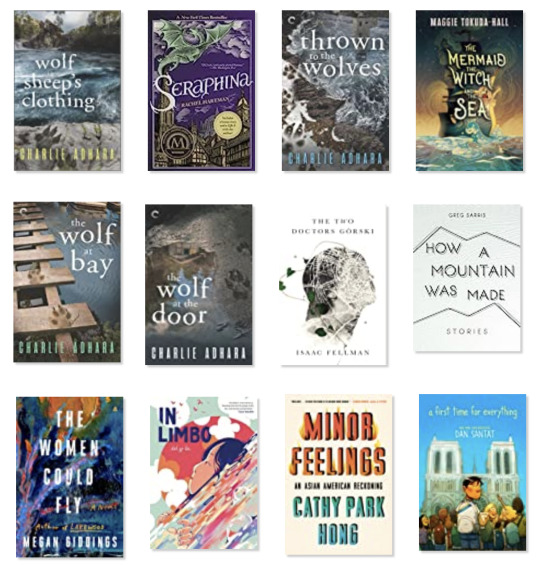
June Reading and Reviews by Maia Kobabe
I post my reviews throughout the month on Storygraph and Goodreads, and do roundups here and on patreon. Reviews below the cut.
A First Time For Everything by Dan Santat
A beautifully illustrated memoir of a shy, Asian American thirteen year old's first trip to Europe, in 1989. Dan is a painfully self-conscious kid, bullied at school despite his best efforts to slip invisibly through the school halls. But on a three week summer trips with a dozen other kids his age, some from his school and some from other states, he begins to find himself. This story is framed through a series of "firsts"- first time traveling without his parents, first time tasting Fanta, first cigarette, first alcoholic drink, first time navigating a city alone, first kiss, first time sharing his art with someone. The main narrative of the trip is woven through with flashbacks to particularly emotional past moments- asking a girl out, being romantically rejected, rejecting someone else, helping a girl out who had gotten her period unexpectedly. It captures the wretchedness of junior high, and the way traveling can teach people both about the world and themselves.
Minor Feelings: An Asian American Reckoning by Cathy Park Hong
An impactful series of essays that circles around the meaning of "Asian American" sometimes in very broad strokes, sometimes narrowing to the author's specific experience as a bilingual Korean American writer who grew up in the Los Angeles area in the 80s and 90s. I really appreciated the mix of memoir and history, research and cultural critique. Topics range from therapy, the 1882 Chinese Exclusion Act, racism in academia, the Korean War, the Vietnam War, stand up comedy, the 1992 LA riots, the way childhood is not allowed equally to white and POC kids, the film Moonrise Kingdom and the 1965 Civil Rights movement, shame, deconstructing the English language in poetry, the 2012 documentary Wildness about a trans bar scene in LA, intense female friendships in art school, the poet Theresa Hak Kyung Cha's life and death, activist Yuri Kochiyama, and what debt, if any, an Asian American writer and thinker owes to America. This is a book I can see myself re-reading in a couple years, and getting more from it on a second read; it's rich with quotes and references to other writers, artists and thinkers who have informed Hong's thoughts. Definitely recommend.
In Limbo by Deb JJ Lee
I'm not going to give this book a star rating, because it deals with some extremely heavy topics I have no experience with (multiple suicide attempts, physical abuse of a child by a parent). This memoir covers four years of the main character's life, all of high school. Korean American Jung Jin, who goes by Deborah or Deb at school, made most of her friends in orchestra in junior high. But in high school she falls out of love with violin and quits music to focus more time and energy into drawing. She floats through school, feeling disconnected from peers and family, especially her mother, who swings from supportive to volatile. Another main theme is friendship- a solid, long-term friendship which Deb neglects, and a shorter, intense friendship that consumes Deb's emotional world until it falls apart. This is a story of quiet survival, of incremental steps towards healing, balance, and self actualization. Like life, it is somewhat loose in structure, but the illustrations are stunning.
The Women Could Fly by Megan Giddings read by Angel Pean
Set in a world similar to but one step sideways from our current world, this story follows Jo, a creative, biracial, bisexual woman trapped by the restrictions of her society. In this US, women are under constant suspicion of witchcraft, a crime that can still be punish by public burnings. Women who aren't married by 30 are especially suspected, and have to check in with a counselor bi-weekly, and risk losing their jobs, freedom, and ability to have their own bank accounts or own property. Jo is 28, and while she is causally dating, she has no interest in marriage. She has a hard time believing that love can even exist under the pressures placed on women. It doesn't help that her mother disappeared when Jo was 14, and during the investigation, she was questioned by witch hunters. It's been 7 years and Jo's father decides it's finally time to declare Jo's mom officially dead. This ends up opening up a clause in her will that requests Jo travel to a island in the middle of one of the Great Lakes on a very specific day in autumn and collect a certain fruit that only grows there... This book is so skillfully written, for the first half I was left wondering if magic really did or did not exist; it could just be the excuse that men used to oppress women, queer people, and people of color. But then the book takes a really Kelly Link or Octavia Butler-like twist in the middle and gets weirder and wilder. Highly recommend, especially the audiobook.
How A Mountain Was Made: Stories by Greg Sarris
A collection of short stories by long time Chairman of the Federated Indians of Graton Rancheria, Greg Sarris; a writer I've been hearing about for years and am finally sitting down to read! These stories are all set around the Sonoma Mountain and Cotati, very close to where I grew up, and I loved being able to picture the foggy mornings, the many oaks, the quail, poppies, lupine, hawks, coyotes, and creeks in these stories. The book has a frame narrative of two crow sisters, Question Woman and Answer Woman, who introduce each story and also appear as characters in one. The stories are interwoven, nearly all set in the village by Copeland Creek where Coyote lives as headman with his wife Frog, his cousin Chicken Hawk, and his many neighbors. The stories use a lot of the kind of repetitive language that lends itself to memorization; I honestly didn't feel like sitting down and reading the book cover to cover wasn't the best way to experience them. It might have been better to flip the book open to a random story and read whichever one caught my eye, especially to read it out loud, either to myself or to a young listener. Maybe I'll get an opportunity to read it that way sometime to a nibling.
The Two Doctors Gorski by Isaac Fellman read by Helen Laser
Annae is a PhD student, a brilliant researcher, and a survivor of academic abuse. She is forced to leave the US when her former mentor claims her research and ruins her name (after sleeping with her). They work in a small field, advanced magic so complex it feels almost more like science, so Annae transfers to a university in the UK to complete her degree. There she finds herself in a cohort of entirely male graduate students under a famous but cruel teacher. Her main defense mechanism and invasive habit is reading minds, a kind of compulsive act that lets her see how her peers view her, and themselves. Unsurprisingly, these insights bring her no peace; Annae tries to rebuild her research, but urge to fall into the same traps as her role models is strong. This is a novella, only about 4 hours as an audiobook, and fairly open ended but I'm still thinking about it.
The Wolf at the Door by Charlie Adhara read by Erik Bloomquist
In this contemporary murder mystery/romance novel, werewolves exist and have always lived in small numbers around the world. A few years before this story starts werewolves outed themselves to the US government in order to better liaison with law enforcement to address werewolf-human crimes, but the general public still does not know werewolves exist. Cooper Dayton survived a werewolf attack, and is subsequently transferred from his former job at the FBI into the BSI, the Bureau of Special Investigation. When two bodies turn up in the woods in rural Maine, Agent Dayton is chosen for a trial program, and he is paired up with an agent from The Trust, the werewolf government. Dayton is attracted to his new partner, Agent Park, immediately- but when it turns out Park's family is active in the area of the murder, Dayton realizes he can't rule out the possibility that his co-worker might be actively covering for the criminal. This book starts an enjoyable paranormal romance series complete with plenty of spice but also very solid procedural mysteries. I was glad to be able to guess some parts of, but not all of, the mystery as it unfolded and I also thought the romance novel beats hit well!
The Wolf at Bay by Charlie Adhara read by Erik Bloomquist
At the start of this second installment in my new favorite paranormal romance/murder mystery series, Agent Cooper Dayton and Agent Oliver Park of the Bureau of Special Investigations have been sleeping together for 4 months but still have not defined their relationship. Some of their miscommunications stem from cultural misunderstandings, but more of it comes from them both being too gun shy to be the first one to say "I love you." Meanwhile, Cooper takes Oliver to meet his family in the small town of coastal Maryland where he grew up- introducing Oliver only as his partner at work, because Cooper's family don't know he is gay and also don't know werewolves exist. Then a 25 year old skeleton is uncovered on the Dayton family property, and Cooper and Oliver have to set aside their other issues to solve the cold case, which might implicate one or both of Cooper's parents. A very enjoyable second book which manages to avoid a lot of the things that often bug me in romance novels and develops the relationship in satisfying ways.
The Mermaid, The Witch and The Sea by Megan Tokuda-Hall
Evelyn, the closeted lesbian teen daughter of nobles in an oppressive and strict empire, sets to sea aboard the Dove on a six month voyage to meet the husband her parents have chosen for her. On the Dove she meets Florian, a sailor her own age she who she befriends despite his lack of education and rough manners. But what Evelyn doesn't know is that Florian is also Flora, an orphan who joined the crew out of desperation and killed a man in cold blood to earn her place. And also- the ship is crewed by pirates, who plan to take all of the passengers as slaves. They have also committed a crime against the very sea itself: the capture of a mermaid with intent to sell it's blood, which men drink to forget. This is a dangerous and violent world, but the connection between Evelyn, Florian/Flora and the mermaid might be enough to save them all, with the help of some cleverness, bravery, magic, and love. This book had some tonal shifts that I struggled with, but I deeply appreciated the multifaceted queer rep.
Thrown to The Wolves by Charlie Adhara read by Erik Bloomquist
The third book in the werewolf/detective romance series I've been wolfing down on audiobook. In this installment, Cooper Dayton, human BSI agent, is still heaving from the wounds of his previous case when Oliver Park, werewolf BSI agent, learns that his grandfather and head of the pack he abandoned several years ago died. Oliver asks Cooper to come with him to the funeral, and Cooper agrees, having no idea what he's getting into. The couple narrowly avoids a deadly car-crash on the way up to the family mansion in Canada, where Cooper learns that even though Oliver's family is fine with him being gay they are not really fine with him dating a human. Several of Oliver's relatives very explicitly try to scare Cooper off, then he's shot with a tranquilizer in what may or may not be an accident, then it turns out that Oliver's grandfather might not have died of natural causes. Amongst all this chaos, will Cooper decide the wolf world is just too much and that he needs to back away from it? Or will be just dive in even deeper? Even though I could easily guess the answer, I am still very hooked and will definitely read more!
Seraphina by Rachel Hartman
Seraphina is the assistant composer to the royal family of Goredd, which means she lives in the castle and spends her days auditioning new musicians, leading rehearsals, performing at state functions and giving the vivacious, whip smart, slightly spoiled princess her weekly harpsichord lessons. In two weeks, the most important dragon general will be visiting the capital city to celebrate the 40 year anniversary of the peace treaty between humans and dragons which he negotiated with the current human queen. But then one of the members of the royal family is killed, and some people start pointing the finger at dragons; tensions begin to rise in the city as anti-dragon mobs attack a young dragon traveling the city in his human form. Amidst this tension, Seraphina is even more desperate to keep her longest and darkest secret: that she is half dragon, and carries hidden scales, maternal dragon memories, and a mental link with other powerful beings. This was such an original take on a dragon fantasy, with a rich and complex world, characters that I immediately cared for and rooted for. I'm definitely going to keep reading this series!
Wolf in Sheep’s Clothing by Charlie Adhara read by Erik Bloomquist
Human boyfriend Cooper Dayton and his werewolf boyfriend Oliver Park are trying to buy a house together; but their aesthetic sense of what makes an inviting home is vastly different, and neither of them are communicating their needs well to the other. How convenient that their next case for The Trust, the werewolf government, involves them going undercover to a couple's retreat where they will investigate a missing person report while also doing bonding exercises and couple's therapy. Will Cooper finally acknowledge that he was PTSD? Will Park admit their massive family wealth disparity could be a source of tension between them? Will they manage to figure out the link between a threatening park ranger, a local lumber mill owner who wants to buy the land the wolf retreat is built on, not one but two missing employees, the mysterious research of a wolf scientist (who may have experimented on his own children), a wolf pack leader showing up at the retreat unexpectedly? This installment continues the development of the central relationship while also fleshing out the lore and intricacies of the wolf world.
38 notes
·
View notes
Text
From Underneath the Umbrella, to the Rain-soaked Faces: Analyzing "Under My Invisible Umbrella" by Laurel Fantauzzo
People of mixed heritage experience unique social dynamics that often go unnoticed by those of a mono-ethnic or mono-racial background. In the Philippines, where remnants of colonial self-hate still linger, being mixed-race can be seen as a blessing, especially when one resembles the Western or Asian colonizers. This preference for colonizer features elevates mixed-race individuals, contrasting with their experiences in the West, where they may be marginalized. The main character in Under My Invisible Umbrella embodies this dynamic. As a half-Filipino, half-Italian-American woman, her mixed heritage places her above pure Filipinos in the eyes of many, especially because of her Western traits.
Having spent most of her life in the United States, the character relocates to the Philippines to reconnect with her mother’s side, which has been largely obscured from her throughout her childhood. One day, after class, she recalls an incident where a man holds an umbrella over her head during a downpour, while her Fil-Am classmates stand drenched in the rain. Though she doesn't initially question his actions, she later realizes the deeper dynamics at play. The sight of her classmates—Filipino-Americans—drenched in the rain, contrasted with her own dry, pale self, underscores the privilege she experiences. The man is not just holding an umbrella for her, but for everything her whiteness represents: wealth, higher social status, and entitlement to special treatment.
This privilege, however, comes with guilt and loneliness. She constantly confronts her elevated status in a country where her foreignness is both an advantage and a mark of separation. She tries to immerse herself in Filipino life, eating at a local karinderya where she feels like an intruder, reminded of her outsider status. Whether it's paying a "dayuhan tax" as a foreigner or mingling with the elite in Forbes Park while workers wait outside the gates, she is never fully accepted. Despite her efforts to blend in, her pale face and imperfect Tagalog set her apart, reinforcing the sense that she is treated as someone with post-colonial privilege, always above the people around her.
As her Tagalog improves, she begins to realize that the "invisible umbrella" separating her from her countrymen may not be so invisible after all. It allows her to fit into the elite world despite her modest wealth and the working-class world despite her whiteness. Her appearance, though, ensures that these privileges remain beyond her control. She must learn to reconcile with this reality—accepting the umbrella that shields her while others are left drenched in the rain. She must acknowledge the guilt that eats at her heart, for it is not a mark of her foreignness. It is rather a personal self-evident truth that beneath her porcelain skin, she is partly, one of us.

2 notes
·
View notes
Text
I need to talk about someone amazing and Tumblr is the place to go to post stuff like this so...
Kiki Wong
She is an absolute ICON.
The insanely talented, passionate, beautiful, revolutionary new guitarist of the well known alt rock band The Smashing Pumpkins.
TW: S*bstance ab*se

WOW. Just WOW.
Just on surface level, she the coolest fashion sense and just RADIATES self-confidence and style. I only found out about her recently, and after doing some research, I found that she's more than just a fashion queen:
She's an amazing guitarist.
10,000 people applied to become The Smashing Pumpkin's new guitarist, and SHE was the WOMAN who got the job. I was curious as to just how good she is, seeing as how she was able to beat 9,999 other amazingly talented musicians for the spot, and when I saw her play... Just, oh my gosh. LIKE BRO HOW DOES ONE ACHIEVE THAT LEVEL OF AWESOMENESS. I'm not a guitar player nor do I have any formal training, but in my opinion, she's one of the best guitarists I've ever seen. There's a REASON she's a part of one of the biggest alt rock bands of this day and age.
She's an advocate for helping people suffering through s*bstance ab*se.
She's shared her experiences with the topic and how she's now clean, which is a HUGE achievement in itself. I applaud her for her strength and will. However, she didn't just quit, she's helping other people who are suffering as well. She's partnered with Unshame California, a group who's working to end the stigma around people suffering from this issue.
The full reel of her talking about the subject in all her amazingness can be found here:
instagram
She's multiracial and AAPI.
Wong is Chinese and Korean American. There are so many people struggling with their identities as biracial or multiracial, especially since there isn't much representation in media for all of the lovely people in the community. Kiki Wong herself has spoken about the struggles of being AAPI (Asian American Pacific Islander), and I feel like her being a huge part of the music scene right now is so uplifting to people who are a part of these groups who struggle in trying to find their identities.
She's a mother
Balancing work life is difficult in general. Kiki Wong takes it to the whole next level: She's the guitarist for one of the biggest alt rock bands right now AND an amazing, loving mother. I could never, that's just so amazing.

Look at that. That's BEAUTIFUL.
This speaks for the feminism movement in so many ways. She shows exactly what we're fighting for: that women can do anything, from being a mother to being one of the COOLEST musicians to ever rock the face of this planet.
She loves her son so much, and watching this sort of parenting is the coolest thing I've seen in a while.
I feel like for someone who is so amazing and influential, she isn't talked about nearly enough.
PLEASE, LOOK AT HER

LOOK AT THIS QUEEN

She's my role model and has taught me so much.
There's so much more amazingness that I didn't cover here, but I just hope that this displays even a fraction of how cool she is.
KIKI WONG SUPREMACY!!!
.
#the smashing pumpkins#kiki wong#queens#guitarists#alternative rock#alt rock#thank you for existing you amaze me with everything you do#Instagram
2 notes
·
View notes